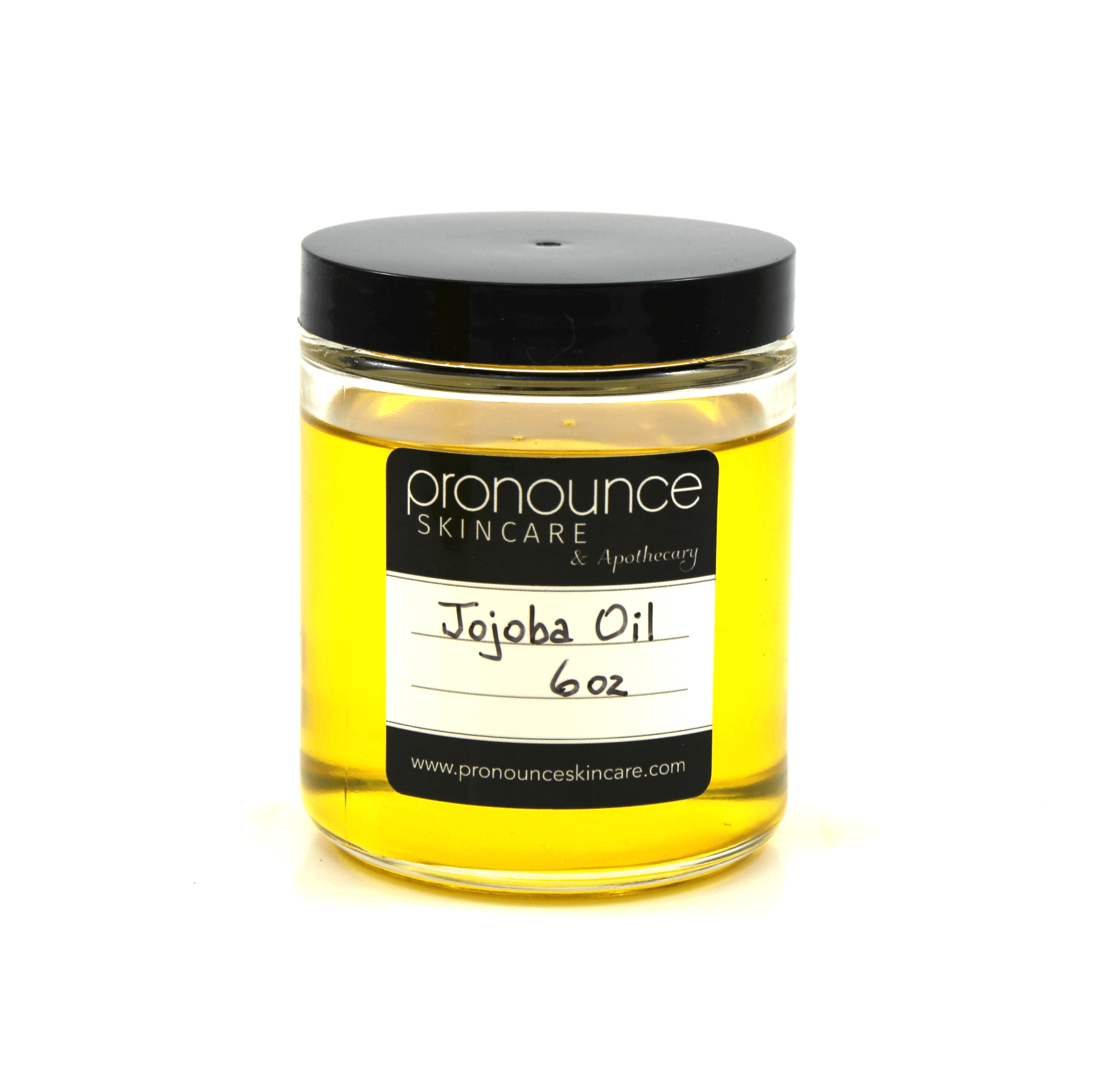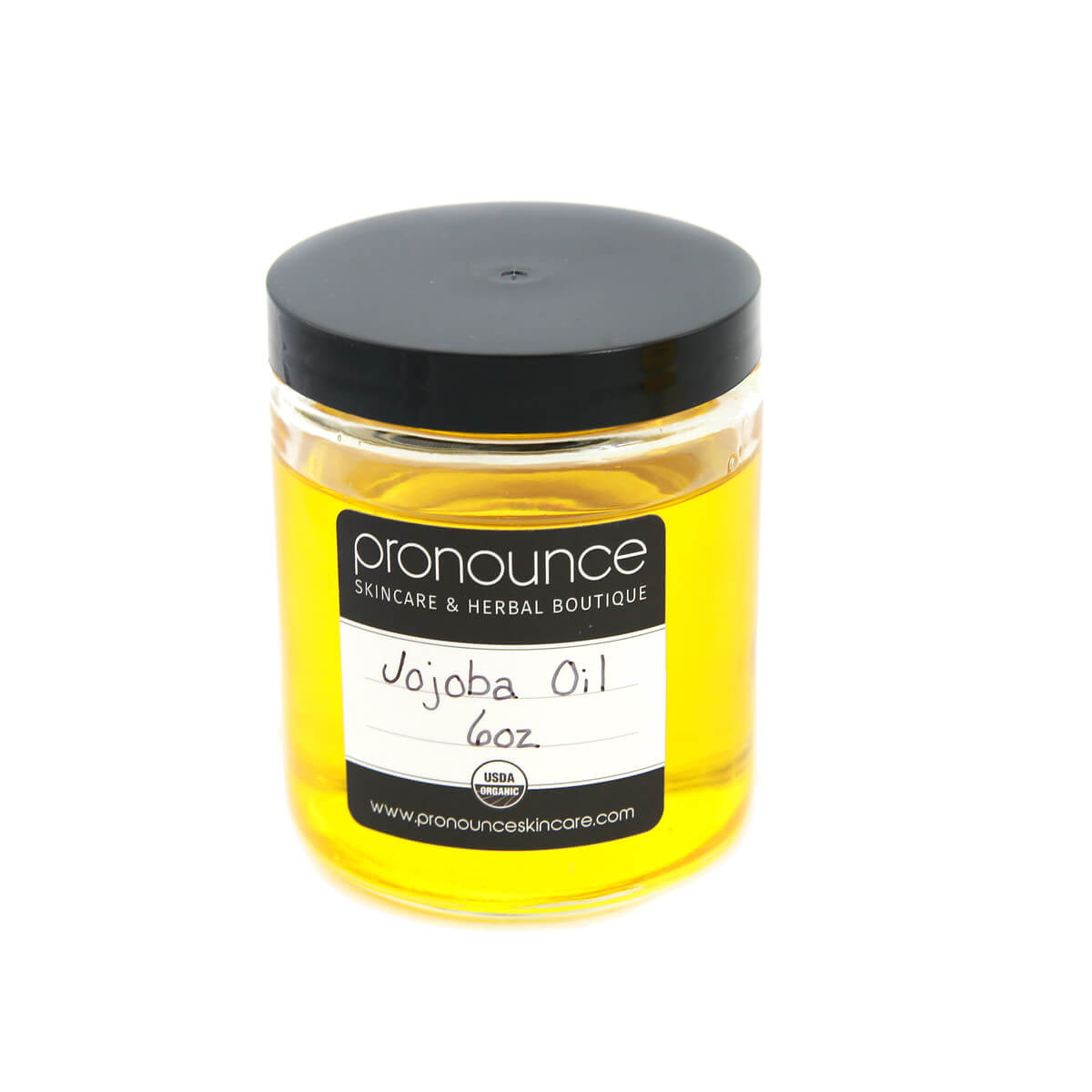How To Pronounce Jojoba Oil is an instruction (verb) that guides individuals on the correct pronunciation of the word "jojoba oil." Its significance lies in its ability to empower individuals with confidence and clarity when discussing this valuable skin care ingredient, known for its moisturizing and soothing properties.
Jojoba oil is a natural oil derived from the seeds of the jojoba plant, highly prized for its moisturizing capabilities and skin-nourishing benefits. Historically, this oil has been used by Native Americans for centuries to treat various skin conditions and promote hair health.
In this article, we will delve into the intricacies of How To Pronounce Jojoba Oil, ensuring you can confidently navigate conversations surrounding this essential ingredient.
How To Pronounce Jojoba Oil
Understanding the correct pronunciation of Jojoba Oil is crucial for clear and effective communication, avoiding confusion or misinterpretation. This guide delves into the essential aspects of How To Pronounce Jojoba Oil, ensuring confident and accurate usage.
- Phonetics: ho-ho-ba
- Emphasis: on the first syllable
- Syllables: 3
- Origin: Native American
- Language: English
- Part of Speech: Verb
- Usage: Instruction
- Importance: Clarity in communication
- Variations: None
Mastering these aspects enables individuals to confidently discuss and utilize Jojoba Oil in various contexts, from skincare routines to scientific research. Accurate pronunciation reflects not only linguistic proficiency but also respect for the cultural heritage associated with this valuable natural ingredient.
Phonetics
At the core of How To Pronounce Jojoba Oil lies the crucial element of Phonetics: ho-ho-ba. Phonetics forms the foundation upon which accurate pronunciation is built, providing a systematic representation of speech sounds. In the case of Jojoba Oil, the phonetic transcription "ho-ho-ba" serves as a roadmap, guiding individuals toward the correct pronunciation of this often-mispronounced word.
Understanding the connection between Phonetics: ho-ho-ba and How To Pronounce Jojoba Oil is paramount for several reasons. Firstly, it enables learners to break down the word into its constituent sounds, making the pronunciation process more manageable and less intimidating. Secondly, by referencing the phonetic transcription, individuals can eliminate regional variations and achieve a standardized pronunciation, ensuring clarity and comprehension in communication.
Practical applications of this understanding extend beyond linguistic accuracy. In the realm of product development, for instance, manufacturers can leverage phonetic transcriptions to create clear and concise instructions for consumers, reducing confusion and enhancing the overall user experience. Additionally, in educational settings, incorporating phonetics into language teaching methodologies can facilitate effective pronunciation instruction, benefiting both native and non-native learners.
Emphasis
Understanding the significance of Emphasis: on the first syllable plays a pivotal role in mastering How To Pronounce Jojoba Oil. By placing emphasis on the first syllable, individuals can convey the intended pronunciation and avoid common mispronunciations.
- Prominence: The first syllable, "ho," is pronounced with greater force and duration, making it stand out from the unstressed second and third syllables.
- Clarity: Emphasizing the first syllable enhances clarity, ensuring that the word is easily understood and recognized, even in noisy environments or when spoken at a distance.
- Distinction: Placing emphasis on the first syllable helps distinguish Jojoba Oil from similar-sounding words, such as "jojoba seed" or "jojoba butter," preventing confusion and misunderstandings.
- Native Pronunciation: Emphasizing the first syllable aligns with the traditional pronunciation used by native speakers of the language, demonstrating respect for the cultural heritage associated with the word.
By grasping these facets of Emphasis: on the first syllable, individuals can effectively communicate using the correct pronunciation of Jojoba Oil, fostering clarity, accuracy, and mutual understanding.
Syllables
Delving into Syllables: 3 is crucial for mastering How To Pronounce Jojoba Oil. Understanding the number of syllables and their composition provides a solid foundation for accurate pronunciation and fluency.
- Syllable Count:Jojoba Oil comprises three distinct syllables, forming the rhythmic structure of the word.
- Word Division: The word can be divided into three syllables: "jo," "jo," and "ba." This division aids in pronunciation by breaking the word into manageable units.
- Stress Pattern: The syllable count influences the stress pattern. In this case, the first syllable, "jo," carries the primary stress, while the remaining syllables are pronounced with reduced emphasis.
- Pronunciation Guide: By recognizing the three syllables and their stress pattern, individuals can develop a precise pronunciation, avoiding common pitfalls and enhancing clarity in communication.
Comprehending the various facets of Syllables: 3 empowers individuals to pronounce Jojoba Oil accurately and confidently, fostering effective communication and a deeper appreciation for the intricacies of language.
Origin
Exploring the facet of Origin: Native American is essential to understanding the cultural and linguistic heritage of How To Pronounce Jojoba Oil. This aspect sheds light on the word's roots and provides valuable context for its correct pronunciation.
- Indigenous Origins: Jojoba oil traces its origins to the indigenous communities of North America, primarily the Native American tribes of the Sonoran Desert region. These communities have utilized jojoba oil for centuries, valuing its medicinal and cosmetic properties.
- Traditional Knowledge: The Native American communities who first discovered jojoba oil possessed a deep understanding of its properties and uses. They passed down their knowledge through generations, contributing to the preservation of this valuable resource.
- Cultural Significance: Jojoba oil holds cultural significance for Native American tribes. It is often used in traditional ceremonies, rituals, and healing practices, reflecting its deep connection to their cultural identity.
- Linguistic Influence: The Native American pronunciation of jojoba oil has influenced its current pronunciation in English. The emphasis on the first syllable and the distinct pronunciation of "jo" are remnants of its indigenous origins.
Comprehending the Origin: Native American facet enriches our understanding of How To Pronounce Jojoba Oil. It highlights the cultural context and traditional knowledge that shaped its pronunciation, fostering a deeper appreciation for the word's history and significance.
Language
Delving into the connection between Language: English and How To Pronounce Jojoba Oil unveils a symbiotic relationship that shapes the word's pronunciation, usage, and understanding.
Language: English serves as the primary medium through which How To Pronounce Jojoba Oil is expressed, documented, and disseminated. It provides a standardized framework for representing the word's sounds, stress patterns, and syllable divisions. This shared linguistic code enables effective communication and comprehension among individuals across diverse backgrounds.
Real-life examples abound, showcasing the integral role of Language: English in How To Pronounce Jojoba Oil. Dictionaries, pronunciation guides, and language learning resources utilize English to convey the correct pronunciation of the word. Additionally, in educational settings, teachers and students engage in discussions and exercises centered around the pronunciation of Jojoba Oil, employing English as the medium of instruction and assessment.
Understanding this connection has practical significance. It empowers individuals to communicate effectively, avoiding mispronunciations that may lead to confusion or misunderstandings. Furthermore, it facilitates the preservation and transmission of accurate pronunciation knowledge, ensuring the word's integrity and meaning are maintained over time.
Part of Speech
In the context of "How To Pronounce Jojoba Oil," understanding its "Part of Speech: Verb" is crucial for unraveling its grammatical function and behavior within a sentence. Verbs play a pivotal role in expressing actions, occurrences, or states of being, and their correct usage is fundamental for effective communication.
- Action Verbs: Verbs like "pronounce" denote specific actions performed by a subject. In "How To Pronounce Jojoba Oil," the verb "pronounce" describes the act of producing the word's sounds correctly.
- Intransitive Verbs: "Pronounce" is an intransitive verb, meaning it does not take a direct object. This aligns with the nature of "How To Pronounce Jojoba Oil," which focuses on the pronunciation process itself rather than an object being pronounced.
- Imperative Mood: The phrase "How To Pronounce Jojoba Oil" is written in the imperative mood, indicating a directive or instruction. This grammatical form aligns with the purpose of the phrase, which is to guide individuals in pronouncing the word correctly.
- Infinitive Form: The verb "pronounce" is in its infinitive form, which is often used in instructional contexts. This form provides a general description of the action without specifying tense or subject.
Comprehending the verb's part of speech empowers individuals to use "How To Pronounce Jojoba Oil" accurately and effectively. It enables clear expression of instructions, promotes consistent usage, and facilitates seamless integration within sentences and larger texts.
Usage
Within the realm of "How To Pronounce Jojoba Oil," "Usage: Instruction" assumes paramount importance, shaping the phrase's primary purpose and guiding its effective utilization. It encompasses the various ways in which this phrase is employed to convey instructional information.
- Instructional Guides: "How To Pronounce Jojoba Oil" forms the cornerstone of instructional guides and tutorials, providing step-by-step guidance on achieving accurate pronunciation. These guides may appear in written, audio, or video formats, catering to diverse learning styles.
- Dictionaries and Pronunciation Resources: Dictionaries and pronunciation resources often include "How To Pronounce Jojoba Oil" as an essential element, offering standardized pronunciations and phonetic transcriptions. Such resources serve as valuable references for individuals seeking to enhance their pronunciation skills.
- Language Learning Materials: In language learning materials, particularly those focused on pronunciation, "How To Pronounce Jojoba Oil" plays a crucial role. It aids students in mastering the correct pronunciation of unfamiliar words, fostering fluency and confidence in spoken communication.
- Educational Contexts: Within educational settings, teachers and instructors may utilize "How To Pronounce Jojoba Oil" to ensure consistent and accurate pronunciation among students. This is especially relevant in subjects like foreign language learning or public speaking, where precise pronunciation is essential.
In essence, "Usage: Instruction" underscores the fundamental role of "How To Pronounce Jojoba Oil" in providing clear and effective guidance on pronunciation. Its applications extend across diverse contexts, from formal education to self-directed learning, empowering individuals to communicate with clarity and confidence.
Importance
Unveiling the profound connection between "Importance: Clarity in communication" and "How To Pronounce Jojoba Oil" reveals the fundamental role that accurate pronunciation plays in effective communication. Clarity in communication is the cornerstone of successful interactions, fostering mutual understanding and preventing misinterpretations.
"How To Pronounce Jojoba Oil" serves as an essential guide, empowering individuals with the knowledge and skills to pronounce the word correctly. This clarity in pronunciation ensures that messages are conveyed effectively, avoiding confusion and miscommunication. In business settings, for instance, precise pronunciation can enhance professionalism and foster trust among colleagues and clients.
In educational contexts, "How To Pronounce Jojoba Oil" becomes an invaluable tool for language learners and educators alike. Accurate pronunciation facilitates comprehension, fluency, and confidence in speaking. Moreover, in scientific research and technical fields, clarity in pronunciation is crucial for precise communication of complex concepts and ideas.
Understanding this interconnectedness has practical applications in various domains. From enhancing interpersonal communication to promoting academic and professional success, "Importance: Clarity in communication" and "How To Pronounce Jojoba Oil" are inextricably linked, underscoring the significance of pronunciation in shaping our interactions and advancing our knowledge.
Variations
The intriguing connection between "Variations: None" and "How To Pronounce Jojoba Oil" lies in the concept of standardized pronunciation. "Variations: None" indicates that there is only one universally accepted pronunciation for the term "Jojoba Oil." This stands in contrast to words that have multiple acceptable pronunciations, such as "route" or "herb." The lack of variations in pronouncing "Jojoba Oil" ensures consistency and clarity in communication.
The absence of variations stems from the fact that "Jojoba Oil" is a relatively new term, with its origins in the Native American language. As the term gained wider usage, a standardized pronunciation emerged and became universally accepted. This standardization is further reinforced by the widespread use of dictionaries and pronunciation guides, which provide authoritative references for correct pronunciation.
In practical terms, "Variations: None" simplifies the learning process for individuals, eliminating the need to memorize multiple pronunciations. It also promotes clarity in communication, as there is no ambiguity regarding the intended pronunciation of the term. This is particularly important in fields such as science and medicine, where precise communication is essential.
In conclusion, "Variations: None" plays a vital role in "How To Pronounce Jojoba Oil," ensuring consistency and clarity in communication. The absence of variations simplifies the learning process, eliminates ambiguity, and promotes precise communication, especially in specialized fields. Understanding this connection enhances our ability to communicate effectively and accurately.
Summary of Key Insights: This article has provided a comprehensive exploration of How To Pronounce Jojoba Oil. Central to this discussion is the understanding of its phonetic transcription, emphasizing the first syllable, recognizing its three syllables, and appreciating its Native American origins. Moreover, the exploration of its usage as a verb and its importance in ensuring clarity in communication highlights the significance of precise pronunciation.
Thought-provoking Closing Message: Mastering the correct pronunciation of Jojoba Oil not only reflects linguistic proficiency but also demonstrates respect for the cultural heritage associated with this valuable ingredient. By embracing the insights presented in this article, individuals can confidently navigate conversations surrounding Jojoba Oil, contributing to effective communication and a deeper appreciation of its cultural and linguistic significance.
Brandi Glanville's Net Worth: A Comprehensive Review
Who Are The Parents Of Tennis Star Carlos Alcaraz Garfia?
Is Drake Maye Related To Luke Maye?



ncG1vNJzZmikmayyr7PKnmWsa16qwG7DxKyrZmpelrqixs6nmLCrXpi8rnvHqK5mrJ9ivbO7zaisp5uVYrewts6bmGanmaF7qcDMpQ%3D%3D